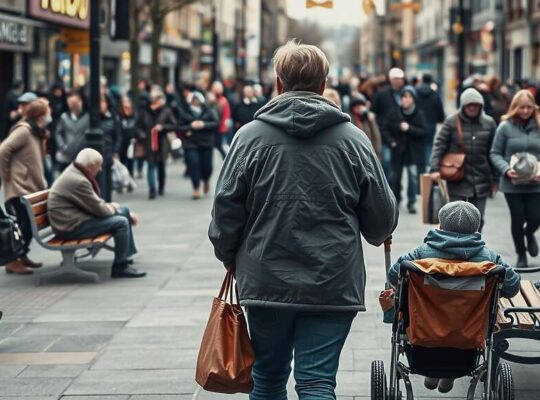the number of employed individuals supplementing their income with citizen’s allowance (Bürgergeld) has risen for the first time since 2010.. The report, which draws on data from the Federal Employment Agency, indicates a rise of approximately 30,000 “Aufstocker” – individuals who work but still require additional support – last year. This follows a consistent decline from 1.4 million in 2010 to under 800,000 in 2023.
A notable aspect of the increase is the demographic shift. According to the IW, around 21,000 of the rise in Aufstocker are attributable to foreign nationals, while the number of German citizens receiving citizen’s allowance and supplementing their income decreased by nearly 7,000.
Holger Schäfer, labor market researcher at the IW, suggests that many foreign nationals managed to find work, despite it not fully meeting household needs. He characterized this as a “partial success” highlighting that individuals are contributing through employment and reducing their dependency on citizen’s allowance.
However, the report also points to potential reform needs within the citizen’s allowance system. The data suggests a lack of incentive for individuals to transition from part-time or low-hour employment to full-time positions. As individuals extend their working hours, a significant portion of the additional earnings is reclaimed through social security contributions, diminishing the perceived benefit.
Conservative politicians echoed these findings. Kai Whittaker, a member of the German parliament, criticized the system as “penalizing work” arguing that it sends a negative signal and inhibits individuals from improving their financial situation. He emphasized the need to reform earning thresholds and social security deductions to ensure that work is rewarded and that the social safety net supports, rather than hinders, individual progress.
The report also highlights the role of family circumstances. Despite working, 80,000 full-time employees still require supplemental citizen’s allowance, often due to larger household sizes. A significant proportion, roughly two-thirds of these full-time Aufstocker, are single parents or live in households with children. The IW notes that larger households necessitate higher support levels to cover basic needs.
The Social Democratic Party (SPD) acknowledged the issue, asserting that the majority of citizen’s allowance recipients are employed and actively seeking to leave unemployment. Dirk Wiese, a member of the SPD parliamentary group, called for a higher minimum wage to ensure that full-time work provides a sustainable income. The SPD also stated a commitment to reform and to address the perception among working-class citizens that the party prioritizes those not in work.
The German government, in its coalition agreement, has pledged to reshape citizen’s allowance into a “new basic security for job seekers”. This includes strengthening job placement services and increasing the rigor of obligations and sanctions. Currently, approximately 5.5 million people in Germany receive citizen’s allowance.












